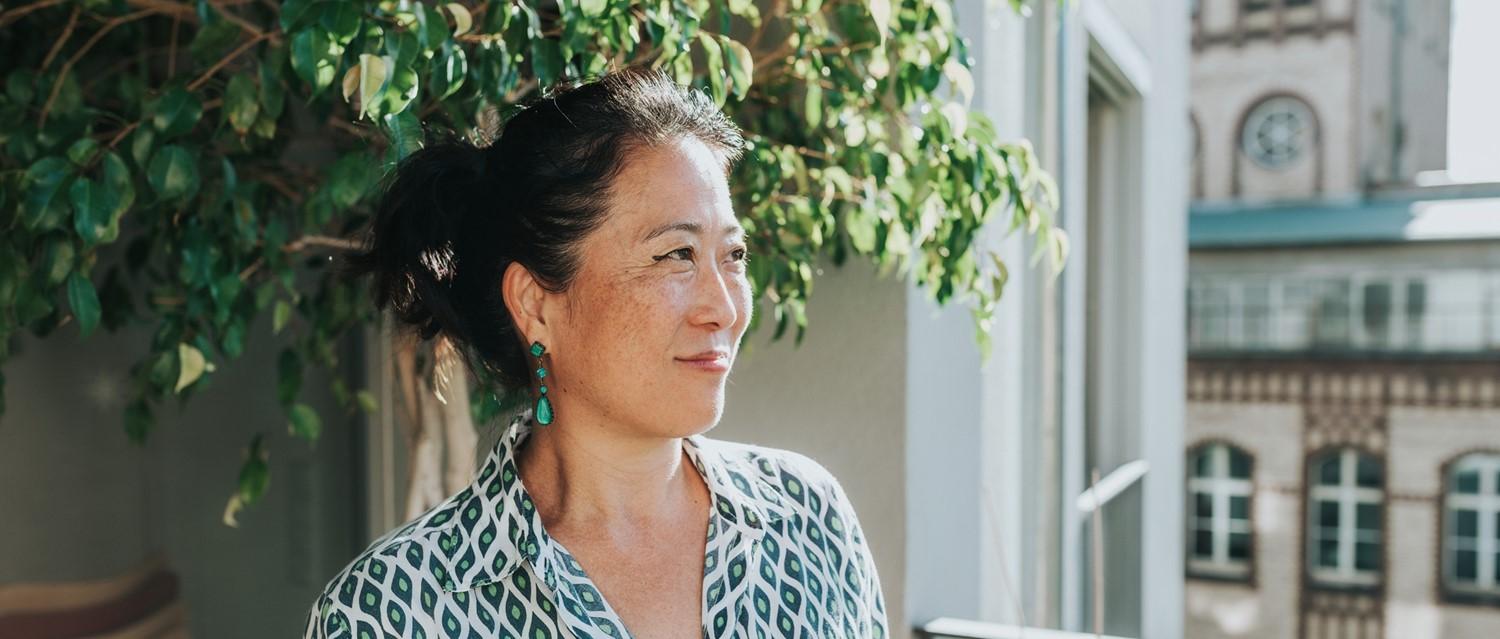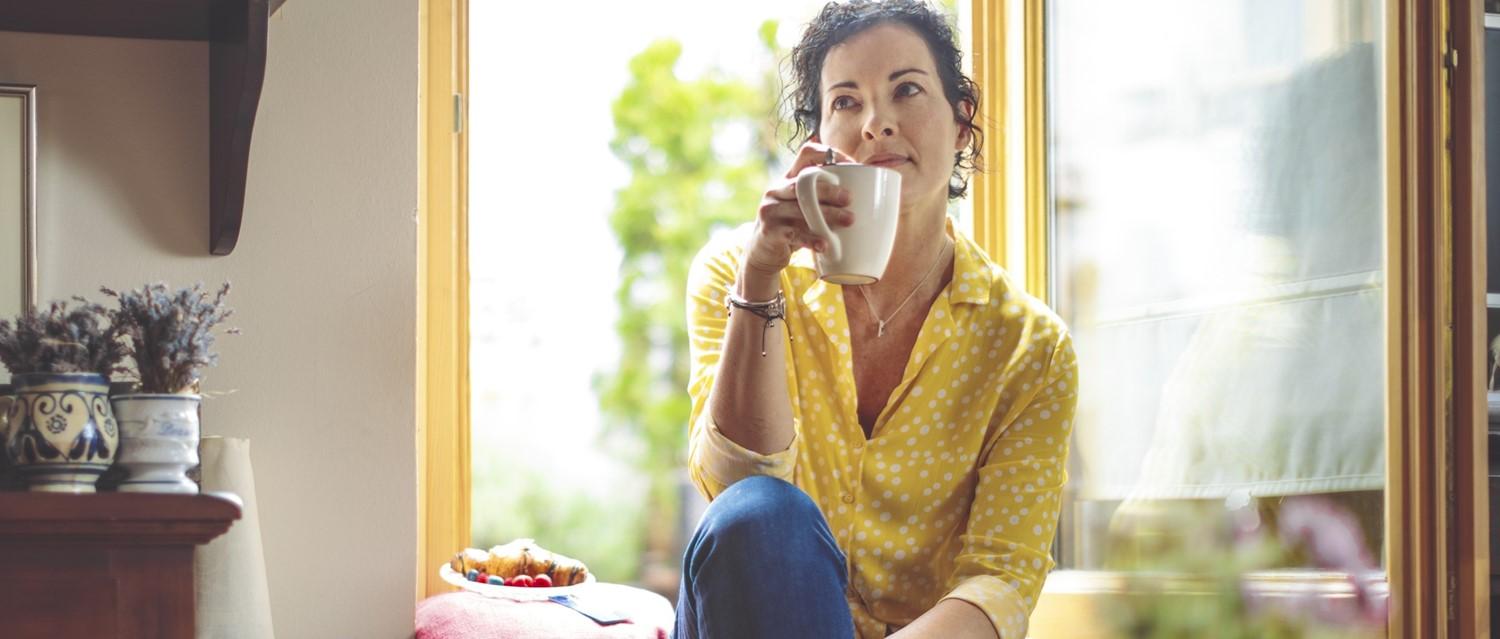
How to manage skin problems at menopause
Peer reviewed by Dr Krishna Vakharia, MRCGPLast updated by Sally TurnerLast updated 13 Jan 2023
- DownloadDownload
- Share
Falling oestrogen levels at menopause can cause skin changes such as dryness, loss of elasticity, dark spots, breakouts and slow wound healing. However, with the right care it is possible to reduce these effects.
In this article:
The skin is the body's largest organ and is comprised primarily of collagen, a protein that maintains the skin’s elasticity and resilience.
"Collagen is the supporting fibre in the skin and also the nails, hair, muscles, bones and blood," says Dr Anne Henderson, consultant gynaecologist, menopause specialist and dermatologist. "As you age and oestrogen levels drop at menopause, it becomes harder for your body to produce collagen and the skin is more susceptible to dryness and fragility."
Collagen reduction in women correlates with the period of oestrogen deficiency rather than chronological age.
Consultant dermatologist, Dr Sajjad Rajpar, adds that alongside collagen loss, oestrogen is also responsible for the natural hydrating mechanisms in the skin.
"When oestrogen is reduced, the skin also produces less sebum, hyaluronic acid and ceramides. These substances enhance the skin barrier and help prevent evaporation. The skin can become dry and itchy when this process is compromised."
Continue reading below
Skin issues at menopause
The face
Wrinkles, brown spots, jowls and dry skin may appear more pronounced as the skin ages. Changes in skin pH and sporadic fluctuations in hormones levels in perimenopause can also make existing skin conditions worse, such as acne, rosacea, eczema and psoriasis.
"Bone density reduces at menopause and there's an osteoporosis risk from not having as much oestrogen," says Rajpar. "Studies using 3D technology have shown that women are more likely to get shrinkage in the jaw and chin bones. These skeletal changes in the face may exacerbate skin sagging and jowls."
One study suggests that the severity and placement of wrinkles could actually predict women's bone density - not only in the face, but fracture risk in body's skeletal system.
"Fat redistribution is really important in the face as well," adds Rajpar. "Fat is stored in different compartments in the face - some become bigger with age, while others shrink. That's why you can get that sunken look higher up in the face, but a sagging heaviness in the jaw area."
The genitals
With decreased oestrogen at menopause, some women may experience vaginal atrophy, dry, thinning skin and a change in skin pH. This can trigger bouts of thrush, bacterial vaginosis and urinary tract infections, and make sex feel uncomfortable. Existing conditions such as vulvodynia and lichen sclerosis may also flare up. A reduction in fat deposits in the labia may make the skin feel looser and less elastic.
Other parts of the body
The hands, scalp and other parts of the body may also be subject to menopausal skin changes, particularly dryness and irritation.
"It's important that we don't just talk about aesthetic appearance, but also the important function of skin in keeping us healthy," explains Rajpar. "It's not simply how the skin looks, but how the skin feels, and also how well it heals after injury. It has been shown that women with decreased oestrogen may heal less well after surgery or if they develop leg ulcers later in life, as a result of obesity or diabetes, for example."
What can be done to help
Daily skincare
Rajpar outlines key points to consider in order to keep skin healthy, particularly during menopause and beyond.
Support the skin's natural pH, which is slightly acidic:
“If the skin gets too alkaline it becomes dry and more prone to irritation from fragrances and preservatives in products. That can exacerbate rosacea, facial redness and so on. So wash with a mild, soap-free cleanser or emollient and don't spend too long in the bath or shower. Wear gloves if you're washing up, and use a good moisturiser on the face and body that protects the skin's barrier."
Consider using retinoids, antioxidants and peptides:
"These ingredients are worth looking out for in serums and creams as they benefit skin health and not just at menopause. Hyaluronic acid is a great moisturiser, though it won't help directly with ageing. Retinols and retinoids (vitamin A derivatives) have more durable benefits as they help with collagen and elastin production, as do vitamin C and other antioxidants, and peptides. You may not see instant results though, it can take time."
Use sunscreen, whatever your skin type:
"Some people think that darker skins are not as prone to UV damage, but they absolutely are. Collagen is broken down when you have sun damage and becomes chronic over time whatever your skin type. Stay in the shade, or wear a hat and wear SPF 50 if you want to reduce skin damage."
Patient picks for Menopause and HRT

Women's health
How to make the menopause a little easier
Some women breeze through the menopause and hardly notice it's happeningbut most - four in five - get hot flushes, and other symptoms including tiredness, disturbed sleep, low mood and vaginal dryness are common as well. So how do you take the drama out of the menopause?
by Dr Sarah Jarvis MBE, FRCGP

Women's health
Perimenopause
Perimenopause refers to the transitional phase that occurs before menopause. It typically begins several years before menopause, although the exact duration can vary from woman to woman. During perimenopause, a woman's body undergoes hormonal changes as the ovaries start producing less oestrogen. Symptoms include hot flushes, night sweating, mood changes, vaginal dryness, and changes in libido.
by Dr Hayley Willacy, FRCGP
Surgical and non-surgical facial procedures
While a surgical facelift remains an option as a more drastic measure to combat skin ageing, the growing cosmetic trend is towards non-surgical procedures. Facial fillers, threads, laser resurfacing and Botox are often viewed as a cheaper, less invasive alternative.
"These procedures can be effective in reducing the appearance of ageing and are lower risk, but they are certainly not zero risk, particularly because skin doesn't heal as well as we age," advises Rajpar.
Fillers are an artificial substance and in the UK their market has, until recently, been completely unregulated. However, in 2021, legislation was introduced to prevent under-18s from receiving treatment without doctor consent. In July 2022, The Health and Care Act became law in England, with the aim of preventing people from administering filler without a license. While these are positive steps, you should still be wary of unlicensed and illegal practitioners. Government campaigns like Save Face can help you find trusted, fully trained practitioners so that your risk of complications are significantly reduced.
"Inject a filler into a blood vessel and it can cause necrosis of tissue or blindness as the filler moves into the arterial system," says Rajpar. "Threading is another facial procedure that is growing in popularity, but thankfully that is considered a surgical procedure and is therefore better regulated in the UK."
He adds that it is important to make sure you are targeting the treatment to the origin of the problem, rather than subjecting the face to multiple interventions that may be inappropriate.
"It shouldn't be about trying to change somebody's face to look anatomically different," he continues. "You're trying to just replace what's missing or improve skin quality so it looks natural."
Hormone replacement treatment (HRT)
An increasing number of women are choosing to supplement declining oestrogen levels with HRT at menopause. This can help support overall well-being and have additional benefits for skin health.
"The safety issues with HRT have been hugely misrepresented," says Henderson. "If you take natural progesterone orally and oestrogen transdermally, HRT really is safe for most women, though of course it isn't the right choice for everyone."
Henderson notes that using HRT - excluding vaginal oestrogen- does come with a small increase in breast cancer risk. But, recent evidence shows that HRT doesn't increase the risk of dying from a heart attack. Henderson also notes that HRT also has protective health benefits which are sometimes overlooked.
""HRT also strengthens your bones against osteoporosis as well as managing hot flushes and improving brain function, energy levels and sexual functioning. In addition to this women will also see some collateral benefit to their skin."
Henderson adds that if vulval and vaginal skin issues are the key problem at menopause these may be managed in the first instance by using topical oestrogen cream or pessaries rather than systemic HRT. Washing with a bland emollient ointment and using a pH-balanced vaginal lubricant - free of silicone, perfumes and glycerin - may also support genital skin health.
The National Institute for Health and Care Excellence (NICE) provides up-to-date information about the benefits and risks of HRT.
Lifestyle changes
"Without a doubt," observes Rajpar, "smoking will really mess up your skin and increase wrinkles and other signs of skin ageing. You've heard it all before, but eating a balanced diet, exercising, and looking after your skin from a young age are what will help in the long run."
Henderson agrees and is keen to point out that women at menopause need to embrace health and lifestyle changes rather than viewing HRT as a potential fix for every symptom.
"I think we've got to be careful that HRT is not presented as a panacea and an answer to everything," she cautions. "Yes it has many benefits but women under my care also get advice about nutritional supplements, probiotics, nutrition, fitness and particularly strength training. If you look after yourself, of course your skin will look better than if you smoke, drink too much or are overweight.
"HRT can relieve many menopausal symptoms, but it will never be the answer to everything. You need to look at your lifestyle and that includes taking care of your skin."
Continue reading below
Further information
If you are concerned about skin issues at menopause, talk with your GP in the first instance. They may refer you to a dermatologist or menopause clinic for further assessment. The British Association of Dermatologists offers a wealth of skincare information on their website, including how to access dermatology care. Contact the British Menopause Society for information on how to find a menopause specialist doctor.
Article history
The information on this page is peer reviewed by qualified clinicians.
13 Jan 2023 | Latest version
21 Sept 2021 | Originally published
Authored by:
Sally Turner

Ask, share, connect.
Browse discussions, ask questions, and share experiences across hundreds of health topics.

Feeling unwell?
Assess your symptoms online for free